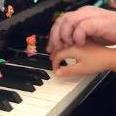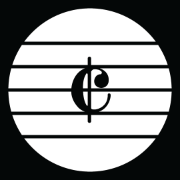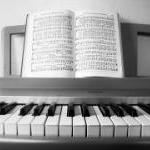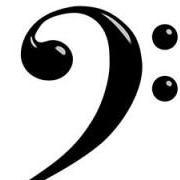Search the Community
Showing results for tags 'etude'.
-
Hi, this is my first advanced piano solo composition . Would love some feedback. Thank you.
-
Hi! This is my second published work after a short one which I have recently took down and am planning to repost as WoO 2 (WoO 1 being my yet-to be published Winter Fantasy). I have received some comments already by other people but I wish to seek what you guys think about this short piece. This etude is about playing parallel passages on the right and left hand. I hope y'all can give some feedback! Thanks in advance! Étude No. 1.mid
-
Greetings. I want to present a piano composition I finished recently. This short étude, written in C-sharp minor, is a toccata-like "show-off" piece designed to allow the performer to display his playing skills. This étude also emphasizes the agility of the weaker fingers of the right hand. I was in a state without inspiration when writing this piece, so most parts of the composition were notated spontaneously. Also, I implemented Mike's techniques in enhancing playback realism, so the playback should reflect my interpretation of this piece. Any feedback is appreciated, and I hope you enjoy this piece! Carl Koh Wei Hao
-
Not sure what game soundtrack this would fit, but it sounds like it could maybe be music for a loading screen on Animal Crossing or something.
-
I made this mess a year ago. It was supposed to be for piano 4 hands but my brain took over in the wrong direction so to speak. It would probably need a lot of untagling to be perfomed. I still like the result. It was inspired by me reading about Galant Schemas and by the etudes of Ligeti (though it is much more regular in metre than those). It has three distinct sections: based on pseudo-classical patterns based on scales based on other patterns
-
An etude is a type of musical study -usually for a performer. For modern uses of the form, however, we often see composers utilizing the form to tackle different compositional obstacles that deal with 'voice' or 'technique'. That said, in following with the historic usage of the form, I decided to write a series of etudes to provide vehicles to explore fusing differing modern techniques within my own musical language. I'm only sharing this on here at the request of @Thatguy v2.0
-
nicknamed it the Metric Etude. Mainly in E phrygian and E minor. https://flat.io/score/5f328cc6c936572203b428d8-etude-no-1-folia
- 2 replies
-
- contemporary
- no 1
-
(and 2 more)
Tagged with:
-
Hi, I have made a simple etude for arpeggios. Hope it helps the development of pianist out there. I adjunt a PDF , MP3 of how iy sounds and an image of how the pedal of measure 34 to 46 should sound. Don't expect so much is pretty simple, musically talking.
-
While working on this piano concerto, I have a lot of material that I'm leaving out -and have decided to use in smaller works (particularly for the purpose of keeping clarity in my material for the concerto). This work uses a tone row built upon intervals of the 4th. The opening bar, which creates a ritornello throughout the work, is the full row. Some notes about the compositional processes I used in this piece: 1. The form could be considered a rondo of sorts. The ritornello passage is labeled E. This returns after each 'episode' labelled C. I chose to keep this material identical. I may at a later date change the last entrance of the ritornello (mirroring it into the retrograde so that it ends on the note the piece begins). 2. The various episodes tinker with aspects of counterpoint (stretto, imitation, invertible counterpoint). The first episode superimposes rhythmic variants of the thematic material creating a rich texture. The second episode takes this type of superimposition and thins it out a little bit (leaving the superimposition to only two voices, while the remainder of the material is condensed into the chords seen in the left hand). NOTE: The second episode does NOT use the full tone row at all -at least not in order. The third episode plays around with invertible counterpoint and imitation, with a twist. The final episode -nearly devoid of counterpoint- is more intended on providing material to close out the piece. Hope you enjoy. I'll be cleaning up the score here in a few weeks once I get my new laptop set up!
-
Let me know what you think!
-
Composition completed on: Etude №4 in A minor ICO №119 - 02/09/2017 Etude №5 "Shadows" in B flat minor ICO №120 - 02/14/2017 You also can watch these pieces here -
-
Composition completed on 12/10/2016 You also can watch this piece here -
-
A short piece for violin and piano 🙂 Sounds very classical. I also got a little limited by my poor knowledge of keyboards… One has to practice … 😉
-
ICO - в хронологическом порядке Композиция завершена 28.09.2016 You also can watch this piece here -
- 4 replies
-
- 1
-

-
- gareev
- cyberpianist
-
(and 2 more)
Tagged with:
-
Completed this piece recently. It is quite short so I'm not sure if it should be lengthened. Feedback is appreciated as always thanks.
-
Hello Everyone, This is another experimental etude I wrote recently. The whole piece consists of many modulations. Again, there are syncopations and irregular time signatures. I have included some notes in one of the pdfs. Hope you like it and I appreciate your comments! Best, HoYin
-
Revisiting old pieces again... as you'll see on the score this was from over four years ago. This is the first in a series of etudes for various instruments I've done. I quite like the harmonic language in this piece, so I might steal it for later pieces... maybe not so arpeggiated, though.
-
Hi everyone, This is my latest piano work, written as a response to Theory 302a. I am definitely under the influence of Bartok's Mikrokosmos 141, in the sense that lots of reflection techniques and irregular time signatures are used in my work. To further explore the power of reflection, I use floating origins of reflections in each bar, with the hope not to stay in the same key for the same sentence. Thank you:) HoYin
-
Please excuse the playing on this. If any pianists would like to record a better version I'd be happy to hear from you!
-
This short little piece was written in response the Birthday Composition Challenge: My instruments came out to be Flute and Vibraphone. I was also inspired a little bit by Luis Hernandez's entry in regards to serialism. This is the first time I've written for this combination, where both instruments are very exposed. Feel free to comment on where I can improve.
-
A short etude I wrote today while taking a break from larger works. I actually thought it came out pretty nice considering I wrote it in less than a day with is really unusual for me. Score is attached but forgive the untidiness.
-
On a whim awhile back, I worked on a set three pieces with the goal that each hand would use a fixed interval to see what I could come up with. I finished two, the first using only thirds and the second using only octaves. I started another etude using sixths, but tabled it after my initial efforts seemed uninspiring. The first etude in thirds is a simple barcarolle which I think would be easy to play. The other etude in octaves, intended to be the third of the set, is a scherzo that probably is unplayable and would break the hands of any performer than tried it. At the time I wrote it, I was studying the piano works of the French composer Charles-Valentin Alkan whose works are notoriously difficult so I think there may have been some influence from that.
-
So this isn't exactly a composition question but this seemed like the best place to put this on here. I just got back from an audition and I plan to challenge as soon as I can. The incumbent, my directors and I all have to choose some cuts for us to audition on and I was considering picking something I was already familiar with from Cyrille Rose's 40 Etudes for Clarinet so I can focus on the other 2 cuts. I'm trying to decide between no. 32 and no. 35...which do you think would be more fitting and/or challenging for someone who hasn't played them before? If it factors in at all, I'm more familiar with no. 32. Here's a link to a pdf of all the etudes...it's the quickest (and only) thing I could find. Thanks for your time! :) http://petrucci.mus.auth.gr/imglnks/usimg/b/bf/IMSLP29006-PMLP64394-40_Studies.pdf












